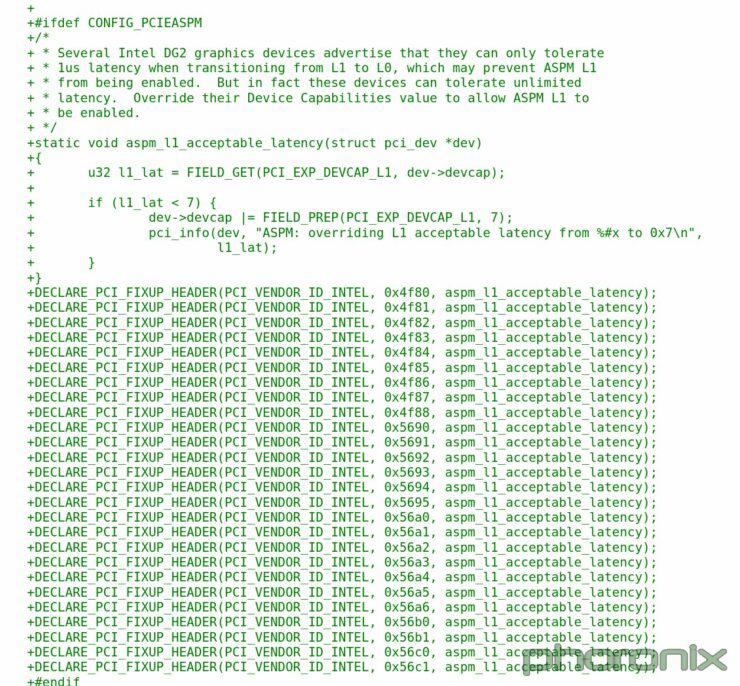Intel, AMD, and NVIDIA have been hard at work to make sure any new technology released now and in the future will be fully compatible with the upcoming Linux 5.19 kernel. Intel's open-source team has recently added a new update to the kernel for DG2/Arc Alchemist dGPU support and is looking to be in better standards than previously from Team Blue. The update created includes the addition of current IDs and support for compute tasks, allowing the latest kernel to offer enhanced power management handling for the Arc Alchemist family of graphics.
New Linux kernel to add more power management control for the Arc Alchemist GPU lines
Integrating into the Linux PCIe subsystem seems abnormal. Intel promotes the Arc Alchemist dGPU with a decent L1 exit latency, equalling less than a microsecond, and can handle exit latencies far beyond the threshold given. The initial batch of the iGPU family from Intel can become enabled as "unlimited," allowing the PCIe Active State Power Management, or ASPM, L1 power savings to find use in many configurations. In turn, users would be able to expect fewer than 1us power exits when continuing PCIe processes.

AMD Ryzen 7000 CPUs Might Have An Advantage Over Intel’s Raptor Lake DDR5 Memory Capabilities As 5200 Mbps ‘Native’ Speeds Listed For 13th Gen
Source: PhoronixPCIe ASPM gains more ability for users to save power during idle states and still produce significant savings for the Intel Arc Alchemist iGPUs. The new Intel Arc Alchemist integrated cards are set to release in the third quarter of this year. Other motherboard and chipset manufacturers have struggled with the various issues found with utilizing PCIe ASPM in their components and devices. Intel seems to have used the power saving option of the utility to give the user the ability to restart immediately from a dormant state on the system compared to lower ASPM L0s modes which cause users to power the system down ultimately when not using the device.
The merge window for Linux 5.19 is planned to open towards the end of this month, and Intel seems to arrange to have their product lines fully compatible and ready for when Linux 5.19 is ultimately released. Linux 5.19 is anticipated to become a powerful version compared to previous versions, especially for Intel's recent integrations and also the company's preparations for Mesa 22.0 and beyond. Users will want to ensure that they update to the newest Linux and Mesa release once available so that everyone can take advantage of the open-source opportunities of their graphics cards and other components in Linux and Mesa.
Source: Phoronix









